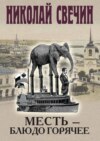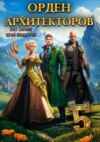Читать книгу: «Brigadier Frederick, The Dean's Watch», страница 9
XXVI
Margredel wore her usual open, kindly expression, and even her usual smile.
"Ah!" said she, "we have no longer our pretty up-stairs room for our friends. The Germans are hunting us out of every place; we will not know where to go soon! However, sit down there on the bench, Father Frederick, and, if you like, we will eat some potatoes together."
Her good-humour and her courage in such a wretched place made me still more indignant against those who had plunged us all into misfortune; my consternation kept me from speaking.
"Are Marie-Rose and the grandmother well?" asked Margredel.
"Yes, thank God!" I answered; "but we are very uneasy about Jean. The Prussians know that he has gone; Father Ykel has warned me to be on my guard, and I came to warn you."
"Who cares for the Prussians?" said she, shrugging her shoulders contemptuously. "Ah! they are a bad race! Jean has crossed the mountains long before this; if they had been able to stop him we would have heard of it by this time; they would have come to tell us, rubbing their hands with delight; but he has got over; he is a fine fellow!"
She laughed with all her toothless mouth.
"Those who have to fight him will not laugh. He is safe with our volunteers! The guns and cannon are thundering yonder!"
The poor woman saw the bright side of everything, as usual, and I thought:
"What a blessing it is to have a character like that; how fortunate!"
Uncle Daniel was walking about the room, saying:
"It is because of Jean's departure that the bandits shut up my school. They had nothing to reproach me with; they gave me no explanations; they simply shut it up, that is all, and just gave us time enough to carry away our furniture; they looked at us crossly, crying, 'Schwindt! schwindt!'"3
"Yes," cried Margredel, "they are sly hypocrites; they strike you heavy blows without warning. In the morning they smile at you, they sit by the fire like good apostles, they kiss your children with tears in their eyes; and then all at once they change their tone, they collar you, and turn you out of doors without mercy. Ah! those good Germans; we know those honest people now! But they will not always be so proud. Wait a bit; Heaven is just! Our own people will come back; Jean will be with them. You will see, Father Frederick! We will go back to the forest house; we will celebrate the wedding there! That is all I can say. Don't you see, you must trust in God. Now we are suffering for our sins. But God will put everything to rights, when we will have finished expiating our faults. It cannot be otherwise. He uses the Prussians to punish us. But their turn will come; we will go to their country. They will see how agreeable it is to be invaded, robbed, pillaged. Let them have a care! Every dog has his day!"
She spoke with so much confidence that it infected me; I said to myself:
"What she says is very possible. Yes, justice will be done, sooner or later! After all, we may take Alsace again. Those Germans do not like each other. We would only have to win one great battle; the break-up would begin at once. The Bavarians, the Hessians, the Würtembergers, the Saxons, the Hanoverians, they would all go home again. We would have it all our own way!"
But, in the meantime, we were in a very sad position. Margredel said that they had enough rye and potatoes to last till the end of the war, and that, with a few sous' worth of salt, would be sufficient for them.
Master Daniel compressed his lips and looked thoughtful.
So, having seen how things were getting along at Felsberg, I took leave of my old friends about eleven o'clock, wishing them all the good things in the world.
I avoided passing by the forest house, and I descended the hill of Graufthal by the forest of fir trees among the rocks, leaning on my stick in the steepest places.
I remember meeting, about two-thirds of my way down, old Roupp, an incorrigible thief, with his faded little blouse, his cotton cravat rolled like a rope round his lean neck, and his hatchet in his hand.
He was chopping away right and left, at everything that suited him; huge branches, small fir trees, everything went into his magnificent fagot, which was lying across the path, and as I called to him:
"Then you are not afraid of the Prussian guards, Father Roupp!"
He began to laugh, with his chin turned up and his scrap of felt hat on the back of his neck, and wiping his nose on his sleeve.
"Ah! brigadier," said he, merrily, "those people don't risk themselves alone in the forest! Unless they come in regiments, with cannon in front of them and uhlans on every side, and ten against one, they always follow the high roads. They are fellows that have a great respect for their skins. Ha! ha! ha!"
I laughed, too, for he only told the truth. But a terrible surprise awaited me a little farther on, at the descent of the rocks.
When I left the wood and saw the little thatched roofs at the foot of the hill, among the heath, I first saw helmets glittering in the narrow lane in front of Father Ykel's hut, and, looking closer, I perceived a ragged crowd of men and women gathered around them; Ykel, at the door of the inn, was talking; Marie-Rose behind, in front of the dark stable, and the grandmother at her little window, with uplifted hands, as if cursing them.
XXVII
Naturally, I began to run through the brushwood, knowing that something serious was happening, and descending the passage of the old cloister, to make a short cut, I came out behind the stable, at the moment that some one was leaving it, dragging our two cows, tied by the horns.
It was the station-master of Bockberg, named Toubac, a short, thick-set man, with a black beard, whose two tall, handsome daughters were said to be the servants of the Prussian hauptmann[#] who had lodged at his house since the beginning of the siege.
[#] Captain.
When I saw this rascal taking away my cattle, I cried:
"What are you doing, thief? Let my cows alone, or I will break every bone in your body."
Then, at my cries, the sergeant and his squad of men, with drawn bayonets, Ykel, Marie-Rose, and even the grandmother, dragging herself along and leaning against the wall, entered the passage.
Marie-Rose cried out to me:
"Father, they want to take away our cows."
And the grandmother said lamentingly:
"Good Heavens! what will we have to live on? Those cows are our only possession; they are all that we have left!"
The sergeant, a tall, lean man, with a tight-fitting uniform and with a sword at his side, hearing Ykel say, "Here is the master! the cows belong to him!" turned his head, as if on a pivot, and looked at me over his shoulder; he wore spectacles under his helmet, and had red mustaches and a hooked nose; he looked like an owl, who turns his head without moving his body; a very bad face!
The crowd was blocking up the passage and the sergeant cried:
"Back! Clear the premises, corporal, and if they resist, fire upon them!"
The trampling of the sabots in the mud and the cries of the grandmother, weeping and sobbing, made this scene fearful.
"These cows suit me," said the station-master to the sergeant; "I will take them; we can go."
"Do they belong to you?" said I, angrily, and clutching my stick.
"That is no affair of mine," said he, in the tone of a bandit, without heart and without honour. "I have my choice of all the cows in the country to replace those that the rascals from Phalsbourg carried off from me at their last sortie. I choose these. They are Swiss cows. I always liked Swiss cows."
"And who gave you the choice?" I cried. "Who can give you other people's property?"
"The hauptmann, my friend, the hauptmann!" said he, turning up the brim of his hat with an air of importance.
Then several of the crowd began to laugh, saying, "The hauptmann is a generous man; he pays those well who give him pleasure."
My indignation overcame me; and the sergeant having ordered his squad of men to go on, at the moment when the station-master, crying "Hue!" was dragging my poor cows after him by the horns, I was about to fall upon him like a wolf, when Marie-Rose took hold of my hands and whispered to me with a terrified look:
"Father, do not stir, they would kill you. Think of grandmother."
My cheeks were quivering, my teeth clenched, red flames were dancing before my eyes; but the thought of my daughter alone in the world, abandoned at this terrible time, and of the grandmother dying of hunger, gave me the strength to keep down my rage, and I only cried:
"Go, scoundrel! Keep the property you have stolen from me, but beware of ever meeting me alone in the forest!"
The sergeant and his men pretended not to hear; and he, the wretch, said, laughing:
"These cows, sergeant, are as good as mine; after a long search we ended by finding two fine animals."
They had searched all the villages, visited all the stables, and it was on us that the misfortune fell. Marie-Rose, on seeing the poor beasts raised by us at the forest house, could not restrain her tears, and the grandmother, her hands clasped above her gray head, cried:
"Ah! now – now we are lost! Now this is the last stroke. My God, what have we done to deserve such misery!"
I supported her by the arm, asking her to go in, but she said:
"Frederick, let me look once more at those good creatures. Oh! poor Bellotte! Poor Blanchette! I will never see you again!"
It was a heartrending spectacle, and the people dispersed quickly, turning away their heads, for the sight of such iniquities is the most abominable thing on earth. At last, however, we were obliged to ascend to our wretched little rooms, and think over our desolation; we had to think how we should live, now that all our resources were taken away. You know, George, what a cow is worth to a peasant; with a cow in the stable one has butter, milk, cheese, all the necessaries of life; to possess a cow is to be in easy circumstances, two are almost wealth. Up to the present time we could sell the produce and make a few sous in that way; now we would have to buy everything at this time of dearth, while the enemy fattened on our poverty.
Ah! what a terrible time it was! Those who come after us will have no idea of it.
XXVIII
All that we had left were five or six hundred weight of hay and potatoes. Ykel, who sympathized with all our griefs, said to me the same day:
"Look here, brigadier; what I predicted has come to pass. The Germans hate you, because you refused to serve under them, and because your son-in-law has gone to join the republicans. If they could drive you away, or even kill you, they would do it; but they want still to give themselves airs of justice and highmindedness; for that reason they will strip you of everything to force you to leave the country, as they say 'of your own free will!' Take my advice, get rid of your fodder as quickly as possible, for one of these fine mornings they will come to requisition it, saying that those who have no cows have no need of fodder. And, above all, do not say that I gave this advice!"
I knew that he was right; the next day my hayloft was empty; Gaspard, Hulot, Diederick, Jean Adam, big Starck, all the neighbours came that evening and carried off our provision of hay by bundles, and in this way I had a few francs in reserve. Starck even gave up to me one of his goats, which was of the greatest use to us; at least the grandmother had a little milk, morning and evening, that prolonged her life; but after so many shocks the poor old woman was terribly weakened, she trembled like a leaf, and no longer left her bed, dreaming always, murmuring prayers, talking of Burat, her husband; of Grandfather Duchêne, of all the old people that returned to her memory. Marie-Rose spun beside her, and sat up till late at night, listening to her laboured breathing and her complaints.
I sat alone in the side room, near the little windows, almost blocked with snow, my legs crossed, my unlighted pipe between my teeth, thinking of all the acts of injustice, of all the thefts, of those abominations that took place every day; I began to lose confidence in the Almighty! Yes, it is a sad thing to think of, but by dint of suffering I said to myself that among men many resemble the sheep, the geese, and the turkeys, destined to feed the wolves, the foxes and the hawks, who feast themselves at their expense. And I pushed my indignation so far as to say to myself that our holy religion had been invented by malicious people to console fools for being preyed upon by others. You see, George, to what excesses injustice drives us. But the worst of all was, that there was bad news from the interior. A party of Germans came from Wechem to confiscate my hay and found the loft empty; they were indignant at it; they asked me what had become of the fodder, and I told them that the station-master's cows had eaten it. My goat happened fortunately to be among those of Starck, or the bandits would certainly have carried it off with them.
This troop of brawlers, then going into the inn, related how the republicans had been beaten; that they had left thousands of corpses on the field of battle; that they had been repulsed from Orleans, and that they were still pursuing them; they laughed and boasted among themselves. We did not believe one quarter of what they said, but their good-humoured air and their insolence in speaking of our generals, forced us to think that it was not all a lie.
As to Jean, no letters, no news! What had become of him? This question, which I often asked myself, troubled me. I was careful not to speak of it to Marie-Rose; but I saw by her pallor that the same thought followed her everywhere.
It was now December. For some time the cannon of Phalsbourg had been silenced, it was said that at night flames had been seen to rise suddenly from the ramparts; we wondered what it could be. We have since learned that they were burning the powder and breaking up the artillery material, and they were spiking the cannon, for the provisions were running out and they were about to be forced to open the gates.
This misfortune happened on the thirteenth of December, after six bombardments and a hundred and twenty days of siege. Half the city was in ruins; at the bombardment of the fourteenth of August alone eight thousand five hundred shells had laid whole streets in ruins; and the poor fellows picked up hastily in the suburbs at the time of the terrible heat and sent into the city, with nothing but the blouses on their backs and their shoes on their feet, after having passed that fearful winter on the ramparts, were carried off again as prisoners of war, some to Rastadt, others to Prussia, through the snow. On hearing this news the consternation became universal. As long as the cannon of Phalsbourg thundered we had kept up our hopes. We said from time to time, "France still speaks!" And that made us lift up our heads again; but then the silence told us that the Germans were really our masters, and that we must make ourselves small so as not to draw down their anger upon us.
From that day, George, our sadness knew no bounds. To add to our misfortune, the grandmother grew much worse. One morning when I entered her room, Marie-Rose said to me in a low voice:
"Father, grandmother is very sick. She does not sleep any more. She seems suffocating! You ought to go for the doctor."
"You are right, my daughter," said I; "perhaps we have waited too long as it is."
And, in spite of the pain of seeing our old fortress in the enemy's hands, I determined to go to Phalsbourg in search of a physician. That day the country was nothing but mud and clouds. I went straight forward, with drooping head, walking on the slope at the edge of the road, my mind a blank, from having thought for so many months of our abasement, and so downcast that I would have given my life for nothing.
On the plateau of Bugelberg, just outside of the forest, seeing before me about three leagues distant the little city looking as if crushed under the gloomy sky, its burned houses, its ruined church, its ramparts levelled with the ground, I stopped for a moment, leaning on my stick and recalling bygone days.
How many times during the past twenty-five years I had gone there on Sundays and holidays with my poor wife, Catherine, and my daughter, either to go to mass, or to see the booths of the fair, or to shake hands with some old comrades, laughing, happy, thinking that everything would continue that way till the end of our days! And all the vanished joys, the old friends, who, in their little gardens at the foot of the glacis, called to us to come to pick currants or to gather a bunch of flowers, seemed to return. How many recollections returned to me! I could not remember them all, and I cried to myself:
"Oh! how distant those things are! Oh! who would ever have believed that this misfortune would come upon us, that we, Frenchmen and Alsatians, should be obliged to bow our necks to the Prussian yoke!"
My sight grew dim, and I set out again on my journey, murmuring in my soul the consolation of all the wretched:
"Bah! life is short. Soon, Frederick, all will be forgotten. So take courage, you have not much longer to suffer."
I seemed also to hear the trumpet of our joyous soldiers; but at the gate, a squad of Germans, in big boots, and their sentinel, with bow-legs, his gun on his shoulder, his helmet on the back of his neck, and, walking to and fro in front of the guard-house, recalled to me our position. My old comrade, Thomé, city overseer and collector of the city duties, beckoned to me to come in. We talked over our misfortunes; and, seeing that I was looking at a company of Prussians crossing the bridge, who, holding themselves erect, were keeping step, he said:
"Do not look at them, Frederick, they are proud when one looks at them; they think that we are admiring them."
Then I turned away my eyes, and having rested for a few minutes I entered the city.
XXIX
Do I need to describe to you now the desolation of that poor Phalsbourg, formerly so neat, the little houses so well built, the large parade ground, so gay on review day? Must I tell you of the houses fallen over on each other, the gables overturned, the chimneys in the air amid the ruins; and of the taverns filled with Germans, eating, drinking and laughing, while we, with long faces, looking scared, wretched and ragged after all these disasters, saw these intruders enjoying themselves with their big pay taken out of our pockets? No, only at the thought of it, my heart sickens; it is a thousand times worse than all that people relate.
As I reached the corner of the parade ground, opposite the church tower, which was still standing, with its cracked bells and its virgin with uplifted arms, a harsh voice called from the state-house:
"Heraus!"4
It was the sergeant of the station who was ordering his men to go out; the patrolling officer was coming, the others hastened from the guard-house and formed the ranks; it was noon. I had halted in consternation before the Café Vacheron. A crowd of poor people, homeless, without work and without food, were walking backward and forward, shivering with their hands in their pockets up to the elbows; and I, knowing from what Thomé had said that the military hospital and the college were crowded with the sick, asked myself if I could find a doctor to visit at Graufthal a poor old woman at the point of death. I was overwhelmed with sadness and doubt. I did not know to whom to address myself or what to do, when an old friend of the forest house, Jacob Bause, the first trout fisher of the valley, began to call behind me:
"Hallo! it is Father Frederick? Then you are still in the land of the living?"
He shook hands and seemed so glad to see me that I was touched by it.
"Yes," said I, "we have escaped, thank God. When one meets people now one almost thinks that they have been resuscitated. Unfortunately grandmother is very ill and I do not know where to find a doctor in the midst of this confusion."
He advised me to go to Dr. Simperlin, who lived on the first floor of the Café Vacheron, saying that he was a good and learned man, and a true Frenchman, who would not refuse to accompany me, in spite of the length of the road and the work he had in the town, at the time of this extraordinary press of business. So I went up stairs; and Dr. Simperlin, who was just sitting down to dinner, promised to come as soon as he had finished his repast. Then, feeling a little more easy, I went down stairs into the large coffee room, to take a crust of bread and a glass of wine, while waiting for him. The room was filled with landwehr; fat citizens in uniform, brewers, architects, farmers, bankers, and hotel-keepers, come to take possession of the country under the command of the Prussian chiefs, who made them march like puppets.
All these people had their pockets full of money, and to forget the unpleasantness of their discipline they ate as many sausages with sauerkraut, and as much ham and salad with cervelats as our veterans used formerly to drink glasses of brandy. Some drank beer, others champagne or burgundy, each according to their means, of course without offering any to their comrades – that is understood; they all ate with two hands, their mouths open to the ears, and their noses in their plates; and all that I say to you is, that as this muddy, rainy weather prevented us from opening the windows, one had sometimes to go outside in order to breathe.
I seated myself in one corner with my mug of beer, looking at the tobacco smoke curling round the ceiling, and the servants bringing in what was wanted, thinking of the sick grandmother, of the ruins that I had just seen, listening to the Germans, whom I did not understand, for they spoke an entirely different tongue from that of Alsace; and at the other end of the room some Phalsbourgers were talking of an assistance bureau that was being organized at the State House, of a soup kitchen that they wished to establish in the old cavalry barracks, for the poor; of the indemnities promised by the Prussians, and on which they counted but little.
The time passed slowly. I had ended by not listening at all, thinking of my own misery, when a louder, bolder voice drew me from my reflections; I looked: it was Toubac, the station-master of Bockberg, who was interrupting the conversation of the Phalsbourgers, who cried, audaciously thumping the table with his big fist:
"It is all very well for you, city people, to talk now about the miseries of war. You were behind your ramparts, and when the shells came you ran into your casemates. No one could take anything from you. Those whose houses are burned will receive larger indemnities than they are worth; the old, worm-eaten furniture will be replaced by new, and more than one whose tongue was hanging before the campaign can rub his hands and stick out his stomach, saying: 'The war has made me a solid citizen; I have paid my debts and I pass for a famous warrior because my cellar was bullet proof. I will devote myself to staying in my country to buy cheap the goods of those who are going away with the money from my indemnities; I will sacrifice myself to the end as I have done from the beginning.' Yes, that kind of war is agreeable; behind strong walls all goes well. While we poor peasants, we were obliged to feed the enemies, to give them hay, straw, barley, oats, wheat, and even our cattle, do you hear? – our last resource. They took my two cows, and now who shall I ask to repay me for them?"
This was too much. When he said that, the effrontery of the rascal made me so indignant that I could not help calling to him from my place:
"Ah! wicked scoundrel, do you dare to boast of your sufferings and of your noble conduct during our misfortunes? Speak of your sacrifices and the good example that your daughters set. Tell those gentlemen how, having searched the country with a squad of Germans, who gave you your choice among all the animals of the mountains and the plain, to replace your wretched beasts, after having stolen, by this means, my two beautiful Swiss cows, you are not yet satisfied. You dare to complain, and to undervalue honest folk who have done their duty?"
As I spoke, thinking that this rascal was the cause of the grandmother's illness, I grew more and more angry; I would have restrained myself, but it was too much for me, and all at once, seizing my stick with both hands, I rushed upon him to knock him down.
Fortunately, Fixeri, the baker, who was sitting beside this rascal, seeing my uplifted stick, parried the blow with his chair, saying:
"Father Frederick, what are you thinking about?"
This had a terrible effect; all the room was in a commotion and trying to separate us. He, the thief, finding himself behind the others, shook his fist at me and cried:
"Old rascal! I will make you pay for that! The Germans would have nothing to do with you. The Oberförster turned you out. You would have liked to have served under them, but they knew you; they slammed the door in your face. That annoys you. You insult honest people; but look out, you will hear from me soon."
These astounding lies made me still more furious; it took five or six men to hold me, so as to prevent me from getting at him.
I should have ended by turning everything upside down, if the landwehr had not called a party of watchmen who were passing along the road. Then, hearing the butt ends of the muskets as they were grounded at the door, and seeing the helmets in front of the window, I sat down again, and everything calmed down.
The corporal came in; Mme. Vacheron made him take a glass of wine at the bar, and as the noise had ceased, after wiping his mustaches, he went out, making the military salute. But Toubac and I looked at each other with sparkling eyes and quivering lips. He knew, the wretch, that now his shame would be discovered all through the city, and that made him beside himself with rage.
As for me, I thought, "Only manage to be in my way going to Biechelberg; I will pay you off for all that you have done; the poor grandmother will be avenged."
He, doubtless, had the same thoughts, for he looked at me sideways, with his rascally smile. I was very glad when Dr. Simperlin appeared on the threshold of the room, making me a sign to follow him.
I left at once, after having paid for my glass of wine, and we set out for Graufthal.































